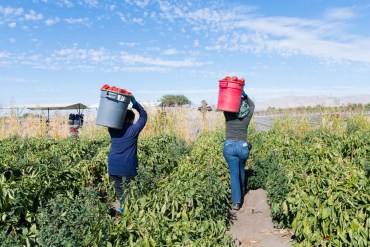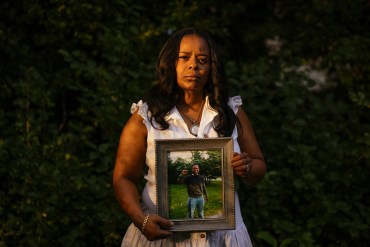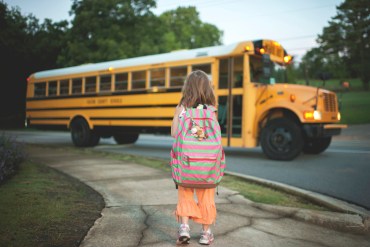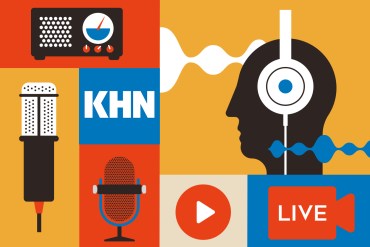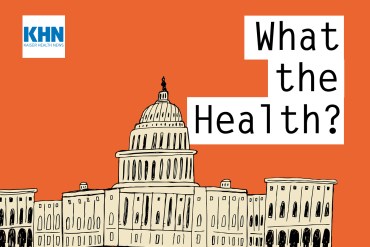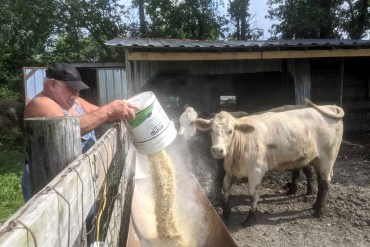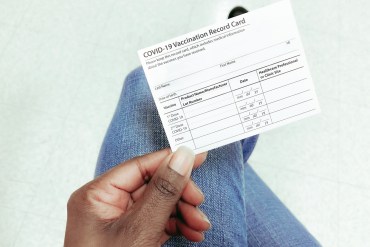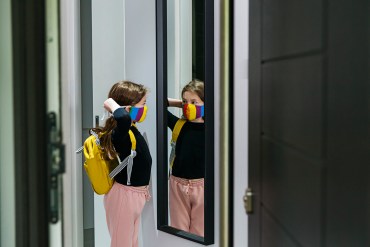These Governors Push Experimental Antibody Therapy — But Shun Vaccine and Mask Mandates
Governors in Southern states, amid a surge of delta-variant infections, are rushing to provide an experimental antibody cocktail therapy, even as they oppose measures like mask mandates and vaccine passports that health officials say can prevent infection in the first place.
Temperaturas extremas aumentan los riesgos de salud de los trabajadores agrícolas
El calor es la principal causa de muerte relacionada con el clima en los Estados Unidos. Entre 1992 y 2017, el estrés por calor mató a 815 trabajadores estadounidenses y lesionó gravemente a más de 70,000, según la Oficina de Estadísticas Laborales.
Pandemic Unveils Growing Suicide Crisis for Communities of Color
Suicides have risen among Black, Hispanic and other communities of color during covid. But the rates were already escalating before the pandemic struck.
As Temperatures Rise, So Do the Health Risks for California’s Farmworkers
Workers who harvest crops ranging from grapes to cauliflower in the Coachella Valley are accustomed to temperatures well over 100 degrees Fahrenheit. This summer the thermometer has already hit 122, and heatstroke is becoming more common.
Readers and Tweeters Ponder Vaccines and Points of Fairness
Kaiser Health News gives readers a chance to comment on a recent batch of stories.
¿Escuela o “ruleta rusa”? Entre delta y no exigir máscaras, algunos padres no ven ninguna diferencia
En las escuelas de Colorado, en donde se registraron los primeros brotes de la variante delta, las autoridades no exigen el uso de cubrebocas en interiores. Pero padres se resisten.
Journalists Investigate Vaccine Mandates and Health Worker Burnout
KHN and California Healthline staff made the rounds on national and local media this week to discuss their stories. Here’s a collection of their appearances.
After Pandemic Ravaged Nursing Homes, New State Laws Protect Residents
This year, 23 states passed more than 70 pandemic-related provisions affecting nursing homes, including measures setting minimum staffing levels, expanding visitation protections and limiting owners’ profit margins.
School or ‘Russian Roulette’? Amid Delta Variant and Lax Mask Rules, Some Parents See No Difference
Students in many places are starting the new school year with their masks off — even in one Colorado county that was one of the nation’s first delta variant hot spots.
‘We Sent a Terrible Message’: Scientists Say Biden Jumped the Gun With Vaccine Booster Plan
Many experts say the evidence doesn’t justify widespread booster shots for adults.
Biden’s No-Jab-No-Job Order Creates Quandary for Nursing Homes
Nursing home operators acknowledge that large numbers of staff members are not getting the shots but fear a federal vaccination mandate could drive away workers in a tight labor market.
KHN’s ‘What the Health?’: Booster Time
As the delta variant continues to spread around the U.S., the Biden administration is taking steps to authorize covid vaccine boosters, require nursing home workers to be vaccinated and protect school officials who want to require masks despite state laws banning those mandates. Meanwhile, the U.S. House is returning from its summer break early to start work on its giant budget bill, which includes a long list of health policy changes. Alice Miranda Ollstein of Politico, Margot Sanger-Katz of The New York Times and Kimberly Leonard of Business Insider join KHN’s Julie Rovner to discuss these issues and more.
To Stoke Rural Vaccination Rates, Trusted Farmers Are Asked to Spread Word
Rural health experts are calling on trusted agricultural leaders — like farmers and ranchers — to use their understanding of science and nudge vaccine-hesitant neighbors to roll up their sleeves for a covid shot. But some farmers say they doubt they can change anyone’s mind.
Covid Politics and Fatigue Work Against Contact-Tracing Foot Soldiers
Local health officials find themselves once again behind the covid curve as the delta variant drives their case counts. With resources already stretched, along with the politicization of covid-19, county and state health departments in places like Missouri and Texas are making tough calls on whom to trace.
If the Unvaccinated Want to Work, They Face a Series of Hurdles
As employers create safety protocols for workers who refuse vaccination, we ask experts if they really work. Or is the point to pressure employees into getting a shot?
Lo que debes saber sobre el refuerzo de la vacuna contra covid
La administración de Biden anunció el miércoles 18 de agosto planes para ofrecer refuerzos de la vacuna contra covid-19 a todos los adultos estadounidenses a partir del próximo mes.
Science Shows Mask-Wearing Is Largely Safe for Children
Scientists have found little evidence that the kind of masks worn by students negatively affect oxygen or carbon dioxide levels.
Federal Vaccine Program Hasn’t Helped Those Whose Lives Were Altered by Covid Shot
A national vaccine court has paid out billions to families who could prove their kids were injured by vaccines. But there’s only a skeletal program for the rare victims of covid vaccination, raising concerns as the pressure for mandated shots grows.
The White House Says Boosters for All. Here’s What You Need to Know.
Federal officials are preparing to offer those who received Pfizer or Moderna covid vaccines a third dose in September. But the FDA and CDC are still reviewing the data for final clearance.
Have Vaccines, Will Travel: On the Road With a Covid Entrepreneur
While many businesses scaled back at the height of the pandemic, one Montana man used covid-19 to open his own mobile pharmacy. He’s now bringing covid shots to Montana’s vaccine deserts while filling his wallet. But he cannot fill all the vaccination gaps.





